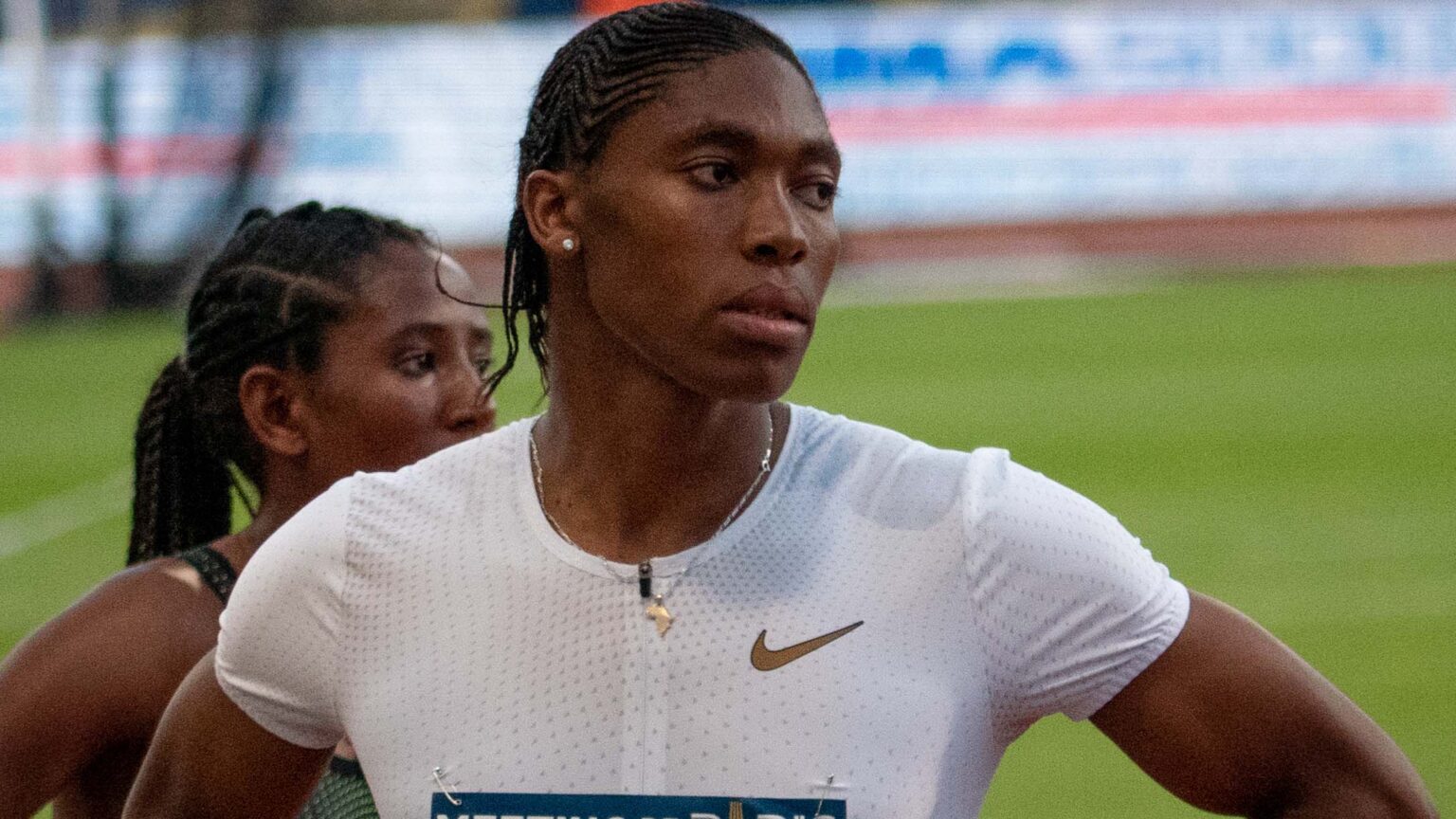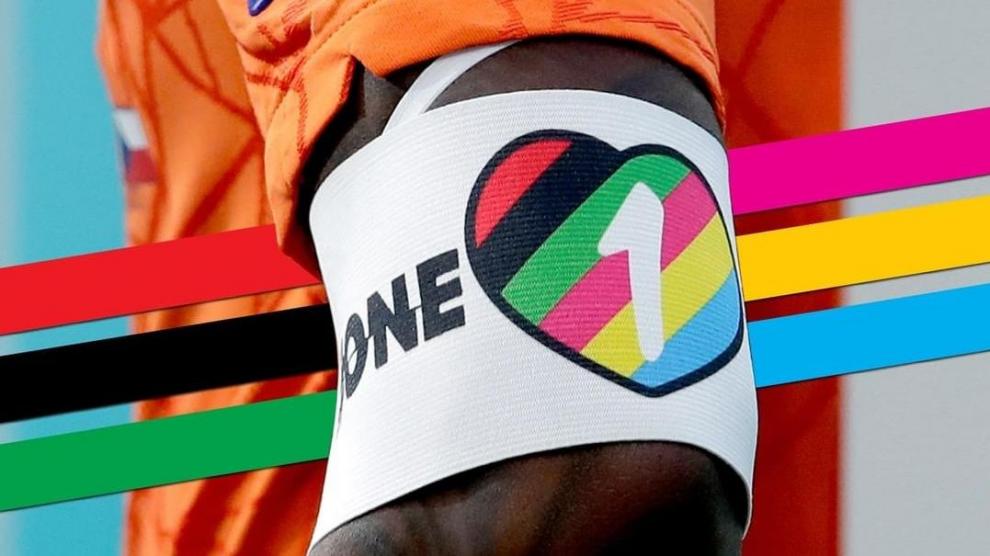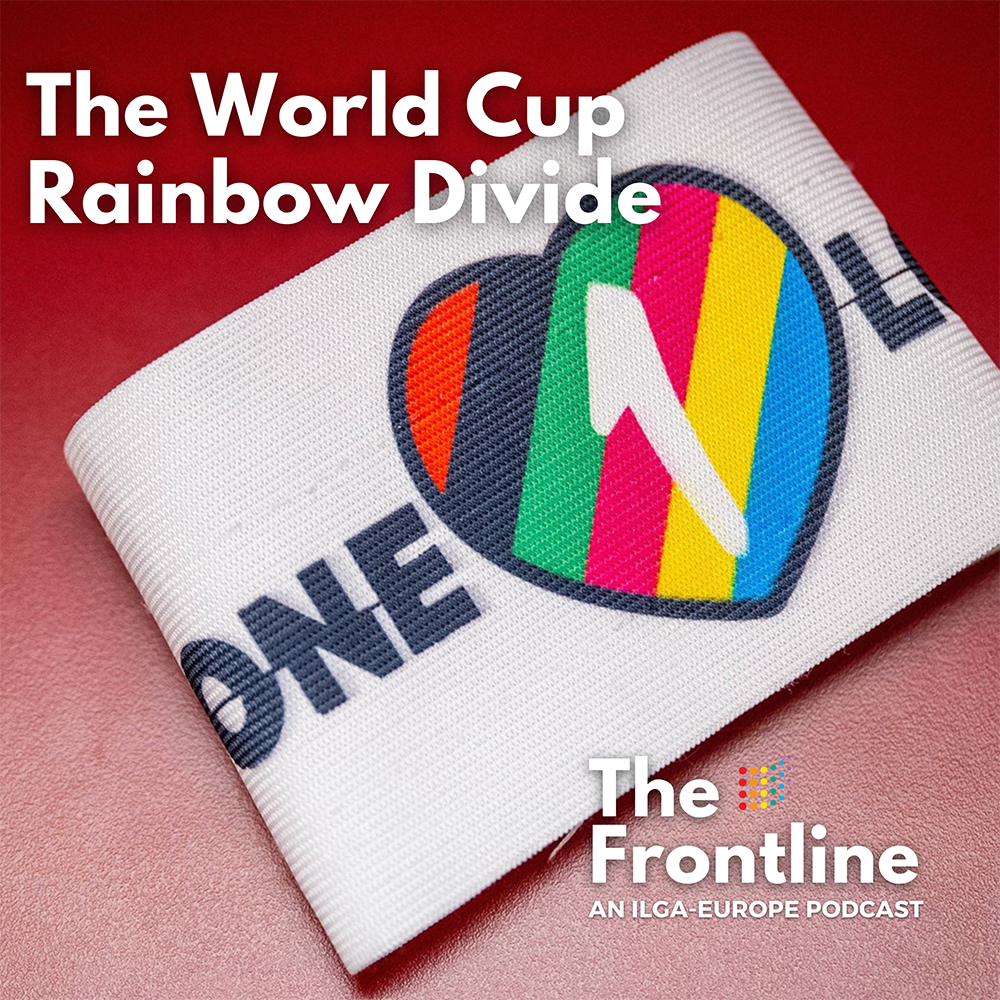Joint statement in support of South African athlete Caster Semenya

ILGA-Europe, The International Commission of Jurists and the organisation Intersex International Europe jointly file a third-party intervention before the Grand Chamber of the European Court of Human Rights in a case concerning the South African athlete Caster Semenya
In July 2023, in its judgment in the case of Semenya v. Switzerland, the Chamber of the third section of the European Court of Human Rights (ECtHR) had ruled in favour of Caster Semenya, a South African Olympic runner, finding that Switzerland had violated her right to freedom from discrimination, taken together with her rights to respect for private life and to an effective remedy had been violated.
The case had arisen from a complaint brought to the Strasbourg Court against witzerland by Caster Semenya, a South African international-level athlete specializing in middle-distance races (800 to 3000 metres). She had refused to comply with the “Eligibility Regulations for the Female Classification (Athletes with Differences of Sex Development – the DSD Regulations)” of the International Association of Athletics Federations (IAAF, now World Athletics), requiring her to reduce her natural testosterone level through hormone treatment in order to be allowed to participate in international competitions in the women’s category, since the side-effects of such treatment were not well understood. Her failure to comply with the DSD Regulations resulted in her being barred from participation in international competitions.
Notwithstanding the July 2023 ECtHR judgment, Semenya and many other women athletes continue to be banned from competing in sports under World Athletics regulations. Later that year, the Swiss government filed a referral request to the Grand Chamber of the ECtHR for a final ruling on Semenya’s case. A hearing in the case will take place in Strasbourg on 15 May 2024.
Kaajal Ramjathan-Keogh, Director of ICJ’s Africa Programme, said, “The Grand Chamber of the ECtHR will have the opportunity to consider Semenya’s complaint of human rights violations and the broader question of discrimination against athletes with hyperandrogenism, a condition characterized by higher than usual levels of testosterone, a hormone that increases muscle mass and strength. Under World Athletics regulations women like Semenya, who have naturally occurring higher testosterone levels associated with Differences of Sex Development (DSD), are barred from competing – unless they subject themselves to medically unnecessary interventions to reduce their testosterone levels and conform to an arbitrary and subjective standard of femininity.”
Organisation Intersex International Europe (OII Europe), ILGA-Europe (the European Region of the International Lesbian, Gay, Bisexual, Trans and Intersex Association) and the International Commission of Jurists (ICJ) filed a joint submission before the Grand Chamber of the European Court of Human Rights to assist the Grand Chamber in its determination of the case. The joint submission focuses on the place of intersex athletes in competitive sports and sporting fairness for all athletes. The submission analyses World Athletics’ constantly evolving rules, which – due to their strict prerequisites – effectively limit and/or prevent the participation of intersex athletes in international sporting competitions. Even though new regulations were issued in 2021 and again in 2023, the submission deals in chief with the 2018 regulations as these are the ones being contested before the Court.
The submission focuses on the following issues:
• The DSD Regulations discriminate against intersex athletes on the grounds of sex within the meaning of Article 14 of the European Convention of Human Rights (ECHR), as well as on the grounds of sex characteristics – in particular, genetic characteristics – which, in turn, fall within the protective scope of the same provision. The joint interveners have provided the Grand Chamber with a comparison between the 10 December 2021 Regulations, 31 March 2023 Regulations, and the 2018 Regulations to show that World Athletics is continually restricting access to sport for intersex and other athletes without “particularly weighty and convincing reasons” by way of justification.
• The 2018 DSD Regulations were less restrictive than the subsequently issued rules as they only limited participation in the following races: 400m races; 400m hurdles races; 800m races; 1500m races; one-mile races; and all other Track Events over distances between 400m and one mile, whether run alone or as part of a relay event or a Combined Event. The 2018 Regulations were nevertheless discriminatory to intersex athletes.
• The submission expands on the wider detrimental effect of the DSD Regulations on the human rights of youth, children and intersex athletes.
• The submission makes brief remarks on the right of access to justice and the right to an effective remedy under international law and standards, including Articles 6 and 13 of the European Convention on Human Rights.
Dan Christian Ghattas, Executive Director of OII Europe, said, “The submission sets out that the 2018 DSD Regulations fall foul on sex characteristics as a ground for discrimination without ‘particularly weighty and convincing reasons’ by way of justification and, as a result, impermissibly discriminate against intersex athletes under Article 14 of the European Convention on Human Rights. In particular, the joint submission underscores the significance of the findings in the Chamber judgment establishing sex characteristics as a prohibited ground under Article 14 of the Convention.”
According to Katrin Hugendubel, Advocacy Director at ILGA-Europe, “Despite claims from the World Athletics that the DSD Regulations will not prevent any women from competing in athletics, they have the effect of forcing some women with variations of sex characteristics to choose between undergoing medically unnecessary interventions to lower their testosterone levels or be precluded from participating in international sport. This is yet another example of discrimination faced by intersex athletes who are exposed to invasive medical examinations and interventions that have a dramatic impact on their ability to participate in competitions, and which may have life-long physical and psychological consequences.”
Background to the case
The 2019 regulations are the ones that are in question in the case, despite regulations also being issued in 2021 and 2023. Sports governing bodies argued that the 2019 regulations broke from the past 50 years of sex testing women athletes, a practice that was humiliating, degrading and discriminatory. However, the revised 2019 regulations still subjected women athletes to sex eligibility criteria that retain these negative, rights-abusing consequences.
Semenya unsuccessfully challenged the 2018 regulations in the Court of Arbitration for Sport based in Lausanne in April 2019. She then appealed to Switzerland’s highest court, the Federal Tribunal, which dismissed the case on grounds that sports regulations violating women’s rights cannot be struck down as inconsistent with Swiss public policy. They added that the DSD regulations were an appropriate, necessary, and proportionate means of achieving the legitimate aims of fairness in sport.
In its July 2023 judgment, the third section of the ECtHR found that Semenya had not been afforded sufficient institutional and procedural safeguards in Switzerland to allow her to have her complaints examined effectively, especially since her complaints concerned substantiated and credible claims of discrimination as a result of her increased testosterone level caused by differences of sex development (DSD). It followed, particularly with regard to the high personal stakes involved for Semenya – namely, participating in athletics competitions at the international level, and therefore practising her profession – that Switzerland had overstepped the narrow margin of appreciation afforded to it in the present case, which concerned discrimination on the grounds of sex and sexual characteristics requiring “very weighty reasons” by way of justification. The high stakes of the case for Semenya and the narrow margin of appreciation afforded to Switzerland should have led to a thorough institutional and procedural review, but Semenya had not been able to obtain such a review. The Court also found that the domestic remedies available to the applicant could not be considered effective in the circumstances of the case.
The 2018 DSD Regulations require a blood testosterone level below five nmol/L for a continuous period of at least six months. The 2023 DSD Regulations, in turn, impose an even lower threshold with respect to the concentration of testosterone in the serum of relevant athletes, namely, below two point five nmo/L. In comparison with the 2018 DSD Regulations, the 2023 DSD Regulations betray an even more misogynistic nature and are a fortiori discriminatory to athletes with variations of sex characteristics. Moreover, the 2023 DSD Regulations’ restricted testosterone level does not just affect intersex persons, but also endosex (i.e., non-intersex) women in general.
In November 2023, Switzerland successfully requested a referral of the case to the Grand Chamber of the ECtHR on the grounds inter alia that Switzerland lacked jurisdiction; that the case did not involve the application of Swiss law; that the Chamber’s ruling would require a fairly fundamental review of the system of judicial review of international arbitral awards requiring alignment with the judicial review of judgments handed down by national courts and this would run counter to the aims of international arbitration and would significantly reduce the attractiveness of this method of dispute resolution.
The World Cup ‘One Love’ Controversy: How the Media Got it Wrong

As the World Cup kicked off this year, the big news story became about FIFA banning of ‘One Love’ armbands meant to show support for persecuted LGBTI people in Qatar. But it created a dangerous “us versus them” narrative, says our Executive Director, Evelyne Paradis.
When FIFA effectively banned all European football players from wearing the ‘One Love’ armband while on the field at the World Cup 2022, it became the dominant news story as the games began. By wearing the armband, players and teams intended to highlight the dire human rights situation for LGBTI people in Qatar, where men who have sex with other men can be imprisoned, or at worst stoned to death. However noble the cause, though, according to our guests on our latest podcast episode, Evelyne Paradis, Executive Director of ILGA-Europe, Ryan Heath, Editorial Director with Politico and Gurchaten Sandhu, Director of Programmes at ILGA World, the ‘One Love’ armband story created a tricky situation for LGBTI communities.
“On one hand, issues faced by LGBTI communities in Qatar needed to be named,” says Evelyne. “You need to react to a stand like FIFA’s. However, the amount of attention was striking, if we think that other pressing issues, like the situation of migrant workers or of women’s rights, which have had little or no attention from media and governments.”
The trouble, she adds, is that we are “constantly putting everything in silos and not looking at the broader picture, and why is it that this one issue is always singled out? Women’s rights, migrant worker’s rights, LGBTI rights… there are so many issues in Qatar that demand the world’s attention. However, only LGBTI rights were in the spotlight. While this could look only beneficial for LGBTI people, in reality disconnecting LGBTI rights from other human rights presents a number of risks in the long run.”
“What we continue to see is a hierarchy of rights. Had we talked about human rights as indivisible, inalienable, we wouldn’t have been in this situation.”
Gurchaten Sandhu
ILGA World’s Gurchaten agrees. “What we continue to see is a hierarchy of rights. Had we talked about human rights as indivisible, inalienable, we wouldn’t have been in this situation.”
Yet, LGBTI communities have been marginalised in the reporting of sports for so long, and Politico’s Ryan Heath, believes that for many journalists, reporting of the ‘One Love’ armband controversy is trying to reverse invisibility.
“There has been an historical underrepresentation of these issues,” he says. “LGBTQI communities have been marginalised in sporting arenas. Now that we are more aware of that, or that people in media outlets are more aware of that, it becomes this over reaction that doesn’t consider other elements.
“It’s the wrong approach, but it’s trying to fix a bigger wrong in the past as well.”
The cost of oversimplification
“It’s oversimplified,” Evelyne adds. “Reporting like this tends to gloss over from the complexity of issues that communities face and that’s the problem at the moment, despite the good intention behind it.
“In the same week, the media were talking about the Colorado shootings and the armband. Yes, the media talks about LGBTI issues where it’s a real tragedy, when there’s violence or when there’s something that can be commercialised, but we know the lives of people are all between the two sides of that spectrum. Why is it so difficult to continue to talk about the situation of LGBTI people in Ukraine at the moment, for instance?
“Reporting like this tends to gloss over from the complexity of issues that communities face and that’s the problem at the moment, despite the good intention behind it.”
Evelyne Paradis
“The framing always is ‘either or’. Like, either you are a supporter of LGBTI equality or you are not. This doesn’t help us to get into the conversations. It doesn’t help to talk about prejudices, misgivings, lack of information people have.”
“The upside of things like the One Love armband controversy is that it gives attention to the issues,’ says Gurchaten, ‘but there is a moral and ethical responsibility in the way it’s reported. The issue is not black and white, there are several complexities and layers to the issue of LGBQ+ people’s rights. We haven’t had a framing to have that discussion.’
For Ryan, the problem is the attention span in a digital world. “You can write 40 paragraphs, that doesn’t mean anyone is going to read them,” he says. “The struggle with smaller and smaller is not going to go away in this internet-heavy media space we live in.”
Looking to the future
“We pick a lot on the media, but what kind of stories are we feeding into the media,” Evelyne asks, while Gurchaten remarks that ‘us versus them’ narratives are also damaging the LGBTI movement itself, “getting us distracted from the real issues, for example, when it comes to trans rights across the world.”
According to Ryan, “Journalists that are interested in covering LGBTI issues are now more visible, so it’s also easier for LGBTI activists to reach out. As with any of us, journalists also learn and evolve and can do justice to these stories in the future. We don’t move forward in a linear way. These are conversations that need to continue happening.”
Ryan ends on a hopeful note. “People [in the media] want to do their jobs right. The more conversations we have with them, the more progress we will get.”
“It’s the wrong approach, but it’s trying to fix a bigger wrong in the past as well.”
Ryan Heath
The Frontline: The World Cup Rainbow Divide

The big story at the beginning of the World Cup 2022 centred on FIFA banning all players on European teams from wearing the ‘One Love’ armband during matches, highlighting the human rights situation for LGBTI people in Qatar.
But what happens when diverging opinions on LGBTI issues become the leading stories surrounding a major sporting event like the World Cup? Do these stories serve the LGBTI communities in countries where people are at risk? Do they serve the greater goals of the LGBTI movement for equality? Or is the focus on LGBTI people and LGBTI issues not creating a Rainbow Divide, in which the human rights of one group are separated from the human rights of all?
This episode of The Frontline will explore the complexities around singling out of LGBTI rights at the Qatar World Cup, when so many other human rights abuses are taking place in the country, if it further fuelled an ‘us and them’ human rights narrative, and what responsibility lies with the media in the reporting of this and other LGBTI centred stories.
Our guests are Ryan Heath, Editorial Director with Politico; Gurchaten Sandhu, Director of Programmes at ILGA World, and the Executive Director of ILGA-Europe, Evelyne Paradis.
Listen to the episode below or follow this link to find it on your favourite podcast platform.